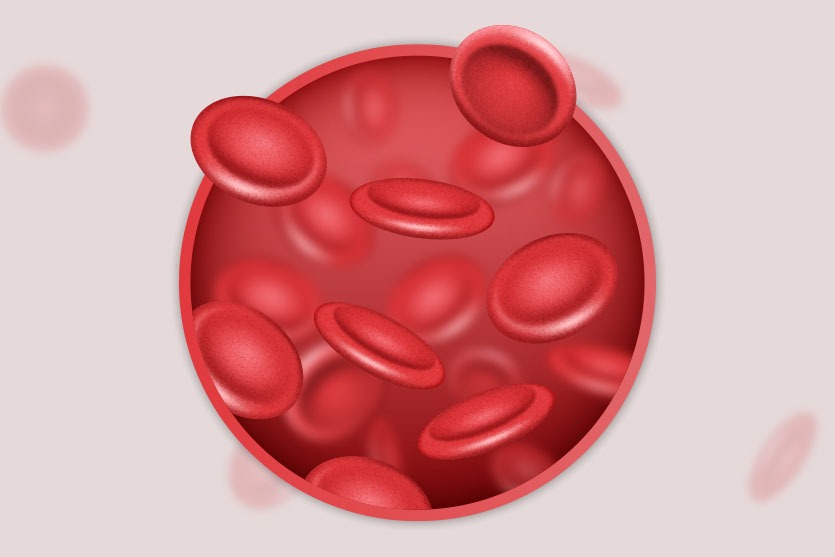
The Significance of Rare Blood Types: Availability Challenges and Impact on Patients
Introduction
Blood, this vital fluid carrying life and hope within its folds, holds a secret related to its diversity. While the general classification of blood is widespread, there are rare types that play a pivotal role in saving and improving the lives of many patients.
The importance of rare blood types lies in their ability to meet the needs of individuals suffering from specific diseases or requiring regular blood transfusions. Blood types like A-negative, B-negative, and O-negative represent a very small percentage of the population, yet they hold immense value in blood transfusions and treatments requiring these types.
However, rare blood types face significant challenges regarding availability and accessibility. Individuals in need of these blood types may struggle to find donors, leading to treatment issues and reduced survival chances. Moreover, these rare types can have a substantial impact on patients needing blood transfusions, as they may face additional health issues due to the difficulty in obtaining blood that matches their type.
It’s important to understand that the challenges faced by rare blood types are not merely administrative issues but extend to humanitarian dimensions where individuals’ lives depend on the availability of these types. Therefore, there should be a focus on enhancing the blood donation culture and raising awareness about the importance of donating rare blood types. Each one of us can be a hero in someone else’s life.
Rare Blood Types
Rare blood types play a vital role in blood transfusions and medical treatments for individuals in need of transfusions. Providing these types can be challenging, especially when patients require urgent blood transfusions. Hence, awareness and encouragement of blood donation, especially for rare blood types, play a crucial role in ensuring the availability of blood for those in need.
There are several rare blood types that represent a small percentage of the world’s population. Some of the most notable include:
- AB- and AB+: The AB blood type is relatively rare, especially when it’s negative. People in the AB+ category are universal recipients and can receive blood from all other types, but AB- is rarer and requires compatible blood.
- B- and B+: The B blood type is somewhat rare, especially B- being rarer than B+.
- A- and A+: The A blood type is common, but A- is rare compared to A+.
- O- and O+: The O blood type is the most common, but O- is the rarest and most sensitive, as individuals from this category can only receive blood from the same type.
The Importance of Rare Blood Types
Rare blood types hold significant importance in the medical field and blood transfusions for several reasons:
- Meeting specific patients’ needs: Some individuals have rare blood types, and finding suitable donors for them when they need a blood transfusion becomes challenging. Rare blood types are crucial for these patients to maintain their health and lives.
- Limited ability to receive blood: Some rare types are very sensitive to specific blood types. For instance, individuals with O- blood can only receive blood from the same type, making the availability of this type crucial for those carrying it.
- Emergencies and critical cases: In emergencies and severe accidents, there might be an urgent need for rare blood types. Securing these types can be critical in saving the lives of those requiring immediate blood transfusions.
- Specific treatments: Certain medical treatments require specific blood types. For example, some individuals need a specific blood type to balance cancer treatments or genetic disorders, sometimes necessitating the use of rare blood types.
- Availability challenges: Providing rare blood types can be challenging because their relative proportion is low compared to more common types. Encouraging blood donation and raising awareness about supporting these rare categories can help improve their availability.
Understanding the importance of rare blood types isn’t limited to the medical aspect but also reflects human solidarity and cooperation in assisting others and saving their lives.
Challenges in Availability of Rare Blood Types
The challenges in the availability of rare blood types encompass several aspects affecting patients and society in general:
- Difficulty finding donors: Rare blood types are less prevalent, making it challenging to find suitable donors. This means that patients in need of these types may struggle to obtain the necessary blood on time.
- Impact on treatment processes: Shortages in rare blood types can affect necessary treatment processes, whether for emergency cases or routine treatments that depend on the availability of specific blood types. This delay or hindrance can adversely affect patients’ health.
- Increased pressure on hospitals and healthcare centers: The scarcity of rare blood types can increase pressure on healthcare institutions, leading them to search extensively for donors or sources to obtain these types, complicating healthcare operations and management.
- Psychological impact on patients: The unavailability of rare blood types can cause anxiety for patients and their families, raising their psychological stress and concerns about their ability to receive necessary treatment.
- Additional health risks: In some cases, the unavailability of required rare blood types can pose additional health risks to patients, such as delayed treatment or complications due to delayed transfusions.
Overall, the shortage of rare blood types poses a significant challenge, affecting the ability to provide comprehensive and effective healthcare to patients in need of these types. Promoting a culture of blood donation and raising awareness about the importance of providing these types can help overcome these challenges and improve the situation for patients requiring this rare type of blood.
Conclusion
Ultimately, the significance of rare blood types emerges as a vital part of the global healthcare system. The availability challenges facing these types reflect the urgent need to increase awareness and contribute to their provision.
Through generous donations and continuous awareness, we can overcome the difficulties in providing these rare blood types and support the patients who depend on them. Every drop of donated blood represents an opportunity to make a significant difference in someone’s life, reflecting the deep human spirit of solidarity and care.
Therefore, let’s move forward with the spirit of initiative and giving, encourage blood donation, and share awareness about the importance of rare blood types. Through our collective efforts, we can make the world a better place where the required blood is available to everyone in need, contributing to saving lives and improving the health of all.









Easton1220
April 25, 2025Very good https://lc.cx/xjXBQT
Vera3099
April 30, 2025Awesome https://is.gd/N1ikS2
Kai1789
May 24, 2025https://shorturl.fm/N6nl1
Camille3003
May 25, 2025https://shorturl.fm/FIJkD
Cassidy3150
May 25, 2025https://shorturl.fm/bODKa
Clint1891
May 25, 2025https://shorturl.fm/FIJkD
Agnes2957
May 26, 2025https://shorturl.fm/5JO3e
Brenda1579
May 26, 2025https://shorturl.fm/m8ueY
Michael2959
May 26, 2025https://shorturl.fm/68Y8V
Brandon4811
May 27, 2025https://shorturl.fm/m8ueY
Londyn3431
May 27, 2025https://shorturl.fm/FIJkD
Giovanni3698
May 27, 2025https://shorturl.fm/oYjg5
Zane2786
May 28, 2025https://shorturl.fm/m8ueY
Anne1261
May 28, 2025https://shorturl.fm/oYjg5
Esme3406
May 28, 2025https://shorturl.fm/68Y8V
Lana1201
May 28, 2025https://shorturl.fm/5JO3e